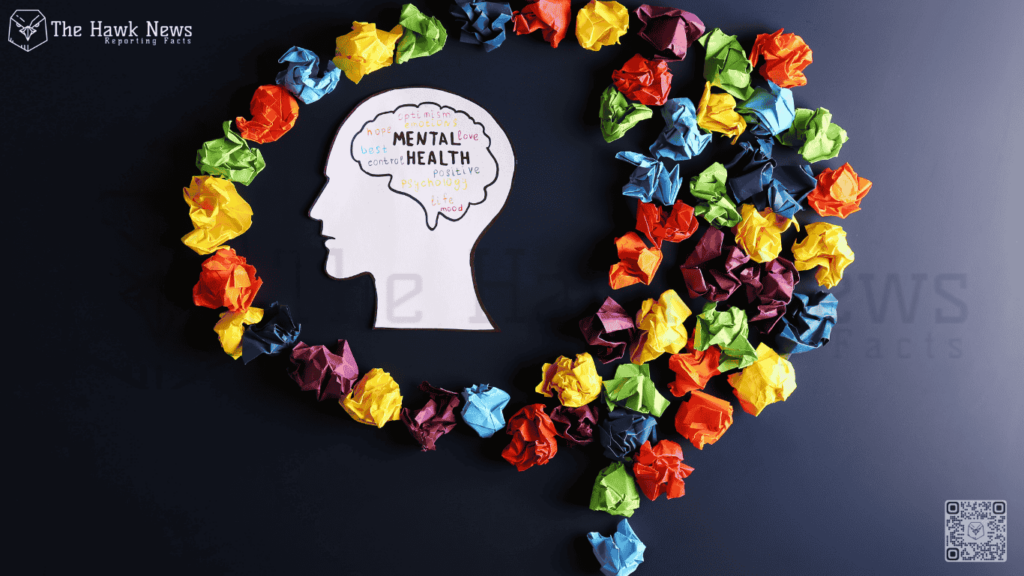
Mental health and well-being are essential components of a fulfilling life, influencing how individuals think, feel, and interact with others. In today’s fast-paced world, mental health has gained significant attention due to its profound impact on personal and societal outcomes. Yet, stigma, misinformation, and lifestyle challenges often hinder open discussions and proactive care.
This article delves into the importance of mental health, the benefits of mindfulness, the dual-edged impact of social media, and emerging self-care practices shaping modern approaches to mental wellness.
The Importance of Mental Health in Everyday Life
Mental health is not merely the absence of mental illness; it encompasses emotional, psychological, and social well-being. Good mental health enables individuals to cope with stress, work productively, and build meaningful relationships. Conversely, poor mental health can lead to decreased quality of life, strained relationships, and physical health problems.
Statistics underscore the prevalence of mental health challenges. According to the World Health Organization, one in eight people globally lives with a mental health condition. Anxiety and depression are among the most common, yet many people hesitate to seek help due to stigma or lack of access to resources.
Mindfulness: A Tool for Mental Clarity
Mindfulness, the practice of being present and fully engaged in the moment, has emerged as a powerful tool for improving mental health. Rooted in ancient traditions, mindfulness has been adapted into modern therapeutic approaches such as Mindfulness-Based Stress Reduction (MBSR) and Mindfulness-Based Cognitive Therapy (MBCT).
Benefits of Mindfulness:
- Stress Reduction: Mindfulness practices, such as meditation and deep breathing, help reduce cortisol levels, the body’s primary stress hormone.
- Improved Focus: Regular mindfulness exercises enhance attention and concentration, which can improve productivity and decision-making.
- Emotional Regulation: By fostering self-awareness, mindfulness helps individuals manage their emotions more effectively, reducing the likelihood of impulsive reactions.
Practical ways to incorporate mindfulness into daily life include:
- Starting the day with a five-minute meditation.
- Practicing gratitude journaling.
- Engaging in mindful eating by savoring each bite.
The Impact of Social Media on Mental Wellness
Social media has revolutionized communication, creating opportunities for connection, self-expression, and learning. However, it also poses challenges to mental well-being.
Positive Impacts:
- Community Building: Social media enables individuals to find supportive communities, especially for those facing mental health struggles.
- Awareness Campaigns: Platforms amplify mental health advocacy, spreading awareness and reducing stigma.
- Access to Resources: Many accounts provide valuable tips, tools, and information about mental health.
Negative Impacts:
- Comparison Culture: Constant exposure to curated and idealized portrayals of life can lead to feelings of inadequacy and low self-esteem.
- Cyberbullying: Online harassment has become a pervasive issue, contributing to anxiety and depression.
- Screen Time Addiction: Excessive use of social media can disrupt sleep patterns, reduce real-world social interactions, and increase stress.
Striking a balance is essential. Limiting screen time, curating positive content, and taking regular digital detoxes are effective strategies to mitigate social media’s adverse effects.
Emerging Trends in Self-Care Practices
Self-care has become a cornerstone of mental health maintenance. Beyond traditional methods, innovative practices are emerging to cater to diverse needs and preferences.
- Digital Mental Health Tools:
- Apps and Platforms: Tools like Calm, Headspace, and BetterHelp offer guided meditations, therapy sessions, and mental health tracking.
- AI-Powered Solutions: Chatbots and virtual therapists provide immediate support for users.
- Holistic Wellness:
- Practices such as yoga, aromatherapy, and sound healing are gaining popularity for their calming effects on the mind and body.
- Integrative approaches combining physical activity, nutrition, and mental exercises create comprehensive well-being plans.
- Workplace Wellness Programs:
- Companies are prioritizing employee mental health by offering flexible schedules, mental health days, and access to counseling services.
- Nature-Based Therapy:
- Activities like forest bathing and eco-therapy tap into the therapeutic benefits of connecting with nature, reducing stress and enhancing mood.
- Cultural and Community Practices:
- Practices rooted in cultural traditions, such as Ayurvedic healing or Indigenous rituals, are being recognized for their mental health benefits.
Breaking the Stigma Around Mental Health
Despite growing awareness, mental health stigma persists. This stigma often prevents individuals from seeking help, leading to prolonged suffering and worsening conditions. Education and open conversations are crucial to breaking this barrier.
Ways to Challenge Stigma:
- Sharing personal experiences to normalize discussions about mental health.
- Encouraging empathy and understanding in workplaces and schools.
- Advocating for policy changes that prioritize mental health funding and resources.
The Role of Community in Mental Wellness
Strong social connections are vital for mental well-being. Communities provide support, reduce isolation, and foster a sense of belonging.
How Communities Can Support Mental Health:
- Peer Support Groups: Creating safe spaces for individuals to share their experiences and learn from others.
- Educational Workshops: Hosting events to spread awareness and teach coping mechanisms.
- Local Advocacy: Pushing for mental health-friendly policies at the local level.
Conclusion
Mental health and well-being are integral to a thriving life and society. As the world evolves, so do the challenges and opportunities related to mental wellness. By embracing practices like mindfulness, navigating the impact of social media, and exploring emerging self-care trends, individuals can build resilience and foster healthier lives.
Addressing mental health collectively requires breaking stigma, leveraging technology, and fostering supportive communities. In doing so, we pave the way for a future where mental well-being is prioritized, celebrated, and accessible to all.